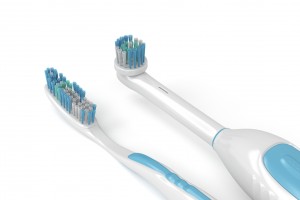How To Choose The Right Toothbrush

Learn how to choose the perfect toothbrush.
One of the most important aspects of oral health is brushing your teeth on a daily basis. When brushing your teeth, you want to make sure you are using an effective tool. Not every toothbrush is made the same, so you want to take your time when selecting one. Luckily, there are a few simple tips you follow so that you can choose the perfect toothbrush.
Focus On The Head And Bristles
One of the most important aspect of choosing a toothbrush is the brush head and bristles. You want to choose a brush with soft bristles because they are effective at removing bacteria and plaque. Hard bristles can damage the gum line and cause it to pull back from teeth, which can lead to tooth sensitivity. It is best if your choose a brush with a small head because it will be easy to reach the teeth in the back of your mouth.
Know When To Replace
One of the key elements of choosing a toothbrush is knowing when to replace your current device. It is best to replace your toothbrush, or brush head on a powered device, when the bristles have become worn. You should replace your toothbrush or brush head every three to four month because they will become less and less effective. Make sure to replace your toothbrush after you get over a cold because your brush harbors bacteria.
Comments
Post a Comment